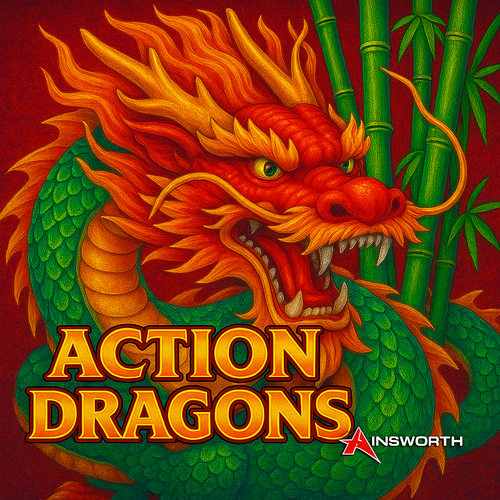When not to play at all: signs of fatigue or overplay
0) Article task
Give objective criteria by which you do not play today/now, even if you "want to finish off." Below are signs, thresholds, a quick test, a stop algorithm and prevention.
1) Characteristic types: four baskets
Cognitive (head): absent-mindedness, slow-motion decisions, "autopilot" in clicks, increase in errors.
Behavioral (actions): violation of limits, dogon, off-plan rate increase, ignoring breaks.
Physiological (body): yawning, dry eyes/headache, back/neck, trembling due to caffeine/stress.
Financial (money): an attempt to replenish "from other people's money," a desire to "return at any cost," a game without a budget.
2) Hard thresholds "I don't play"
If any item is triggered, the game is canceled or the day is closed.
Time and load
3 sessions per day or> 5 per week.
Limits and money
Day/week stop loss reached.
Desire to replenish in debt/from money for mandatory expenses.
Rate growth> + 25% of the plan "simply because it is unlucky."
Condition
Played/going to play under alcohol/substances.
Expressed anger, irritation, desire to "take revenge on the slot."
3 + miscliques (erroneous clicks) in 15 minutes.
Discipline
Ignoring two consecutive scheduled breaks.
Skipping log entries two sessions in a row (means control is lost).
3) Play/Don't Play express test (yes/no)
Answer honestly. If "yes" on 3 points, you take a timeout for 24 hours. If "yes" for 5 + - a pause for 72 hours and a budget revision.
1. I want to "recoup."
2. Tired (a )/sleepy (a), I press the buttons in the "fog."
3. Was (a) petulant offside today.
4. Missed the break (s) for the sake of "a little more."
5. Already breached (a) limit or almost on edge.
6. I am thinking of raising the rate without a plan.
7. No fresh daily limit/log at hand.
8. In my head "today will definitely be lucky" instead of calculation.
9. I play on business/on the road/during working hours.
10. There was a series of bowls/errors.
4) Stop algorithm (if signs are noticed)
1. Pause 10-15 minutes right now (get up, walk, water, breathing 4-7-8).
2. Revaluation by check list (Section 3).
3. If the ≥3 is yes, close the session.
4. If stop loss is reached/there is a desire to "catch up" - the day is closed.
5. Log: time, emotions, reason for stopping, bank balance.
6. Assign the next game window no earlier than 24 hours (or 72 - at 5 + "yes").
5) Objective indicators of overplay in the session
Concentration drawdown: the average reaction interval increased (blunt before clicking).
Split bet: Non-plan bet size jumps every 10-20 spins.
Game "deafness": stopped reading hints/conditions feature.
Emotional outbursts: loud reactions even to small events.
Tunnel vision: playing in one slot "all the way," ignoring alternatives.
Depreciation of winnings: + 50-100% to the deposit "means nothing, you need more."
6) Physiology and hygiene games
Minimum for attention safety:- Timer: every 45-60 min - 10 min break.
- Eyes: 20-20-20 rule (look at 6 m every 20 minutes - 20 seconds).
- Water/food: glass of water at the start; not playing hungry/overeating.
- Fit and light: eye-level screen, neutral lighting.
- Caffeine: if your hands shake/your heart beats harder than usual - pause.
7) Financial discipline (default)
The monthly budget ≤ 1-3% of free funds (something that is not a pity to lose).
The weekly/daily limit is fixed in advance with numbers.
Stop loss of the day = daily limit; no repeated deposits.
Stop wine: + 50-100% to the deposit → fix 50% profit.
Any desire to break these rules = stop immediately.
8) Self-test tools (turn on once - and do not touch)
Reality Check - a pop-up of time in the game.
Account deposit/loss/time limits.
Timeout/self-exclusion for 24-72 hours or longer.
Blocking payments for games on the bank side (hard fuse).
Session log: date, slot, bet, duration, emotions, total, whether the rules are followed.
9) Recovery protocol (when already "burned out")
Day 0 (immediately): sleep 7-9 hours, water, walk 30-45 minutes, zero games/content about the game.
Day 1: budget revision, moving parts of money out of casino access, setting limits.
Day 2-3: light physical activity, return to routine, revision of goals (game = entertainment, not income).
Return to the game only after passing the express test with the ≤2 "yes."
10) Overplay prevention (schedule and protocol)
Calendar of sessions: 3-4 windows per week, 60-75 minutes, non-consecutive days.
The rule of two breaks: one in the middle, one at the end (even if "lucky").
Set of slots: pre-selected pool for different purposes (low/medium volatility).
Rate plan: base rate ≤ 1% daily limit; revision only every 100 spins.
Stop word: "STOP" at any thought of "catching up" - immediately exit.
Other people's triggers: do not play with conflicts/stress/rush/during working hours.
11) Check list before start (print)
Sleep ≥ 7 hours, sobriety, normal health.
The daily limit and stop loss/stop wines are recorded in numbers.
60 min timer + break reminder on.
The rate ≤ 1% of the daily limit, the slot is selected in advance.
The reason for the game is entertainment, not "giving back."
Ready to terminate on first trigger.
12) Red flags' not playing today'
Conflict/stress at work/home.
Lack of sleep, illness, hangover.
No time for breaks (things are burning).
Plans for the money you want to play with.
Willingness to break any "if you're lucky" limit.
13) Mini-mnemonic S.T.O.P.
Is sleep normal? Timer/limits worth? Play in thoughts? Is there a betting plan?
Any "no" → do not play.
Result
Fatigue and overplay are recognized by specific thresholds: time> 90 min, 3 + sessions per day, violation of limits, off-plan rate increase, bowls, tilt, lack of sleep, attempt to "catch up." Any such trigger is a pause/stop, logging and postponing the next game for at least a day. Prevention - schedule, breaks, limits and willingness to stop at an early signal, and not "when everything was blown away."



















